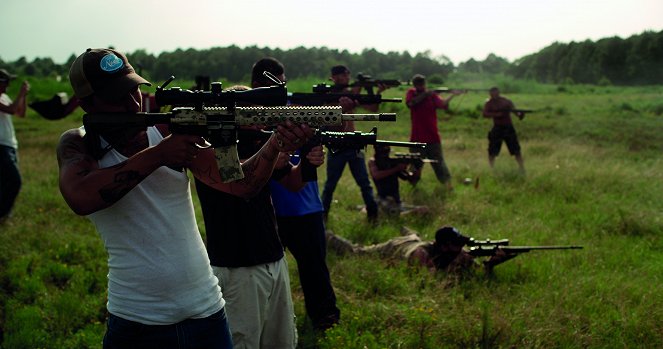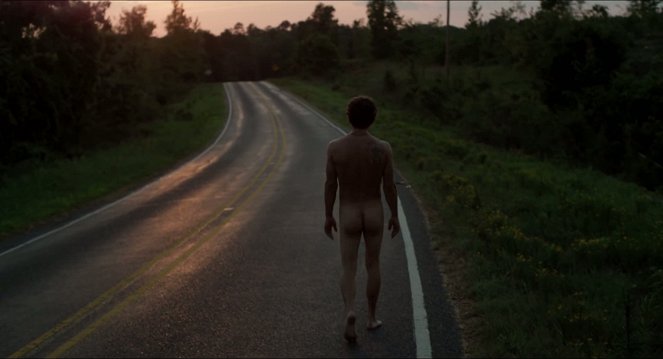Opisy(1)
In an invisible territory at the margins of society, at the border between anarchy and illegality, lives a wounded community that is trying to respond to a threat: of being forgotten by political institutions and having their rights as citizens trampled. Disarmed veterans, taciturn adolescents, drug addicts trying to escape addiction through love, ex-special forces soldiers still at war with the world, floundering young women and future mothers, and old people who have not lost their desire to live. Through this hidden pocket of humanity, the door opens to the abyss of today's America. (Cannes Film Festival)
(więcej)Materiały wideo (1)
Recenzje (1)
Minervini is an example of a hybrid filmmaker (in Italy, other examples include Alessandro Comodin, Michelangelo Frammartino and, to some extent, Gianfranco Rosi), whose films are too much in the style of documentaries to be fiction and, at the same time, have too many staged moments to be pure documentaries. As in the preceding Texas trilogy, in The Other Side non-actors perform scenes that are more or less inspired by their real lives and subsequently arranged into a relatively cohesive narrative (while the staged scenes often serve to connect them). It is thus a combination of documentary observation with collective dramaturgy (Jean Rouch used something similar, “collective anthropology”, in the past). Besides Minervini, the crew comprised only three other people (cameraman, sound engineer and second assistant camera), who attempted to communicate with each other without the use of film jargon in order not to have the effect of being foreign elements and thus to fit into the given environment. The film was shot with a digital camera without interruption (until the disk capacity ran out), without artificial lighting and without changing lenses. With his disarming straightforwardness, empathetic approach and method of filming, Minervini breaks down the notional wall between the creator and the (social) actor and lets the actors reveal themselves. His unsentimental and non-judgmental viewpoint is not subordinated to an attempt to confirm or refute any particular opinion. He also takes a neutral position in the case of two drug addicts and members of a far-right militia (their thoughts and sources of frustration are in many ways similar – just as one half of the film complements the other). The social context is not determinative for him. He mainly wants to understand the emotions of the characters and the relationships between them. Thanks to that, he offers an unpleasantly intimate insight into the world of people who live on the periphery of middle-class America, but there is an ever-increasing number of them and they are increasingly vocal and have greater influence (because they speak and think like their current president) and we obviously should try to understand them if we want to comprehend what is happening with society as such. 75%
()
Galeria (12)
Photo © 50. MFF Karlovy Vary 2015


